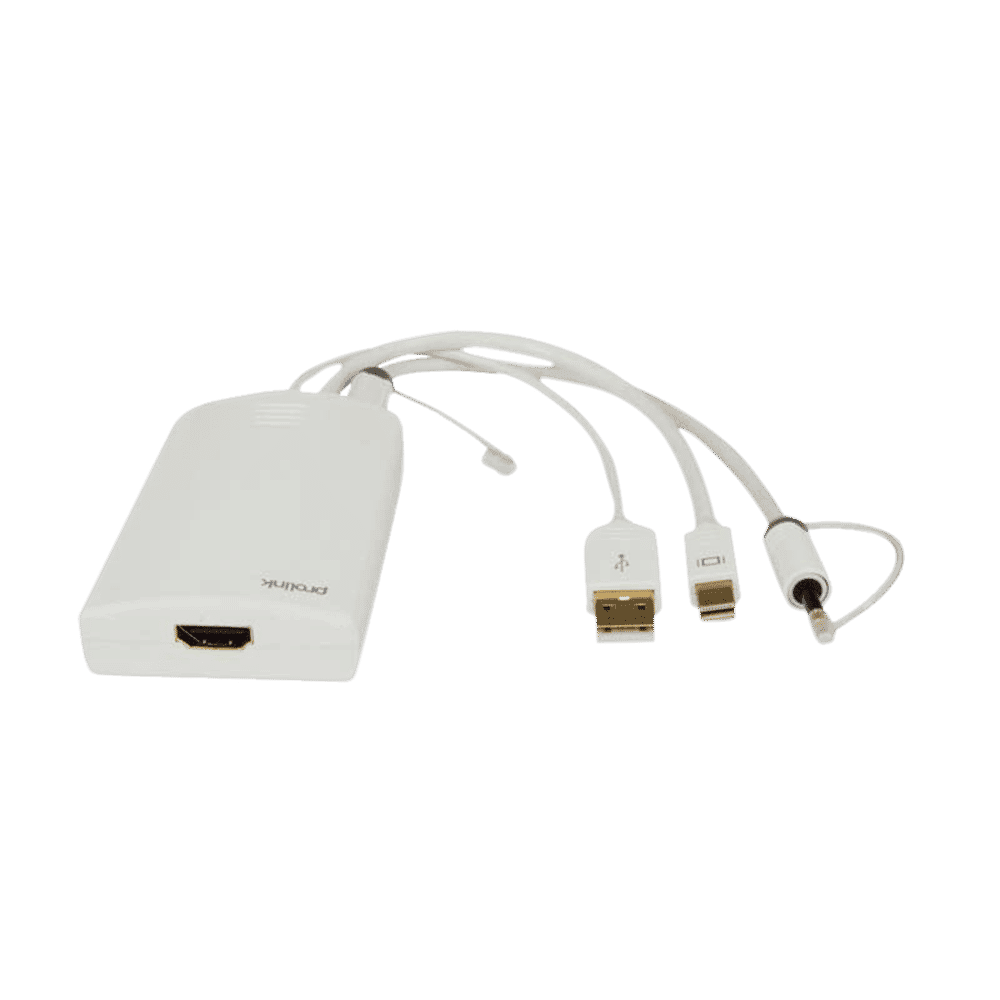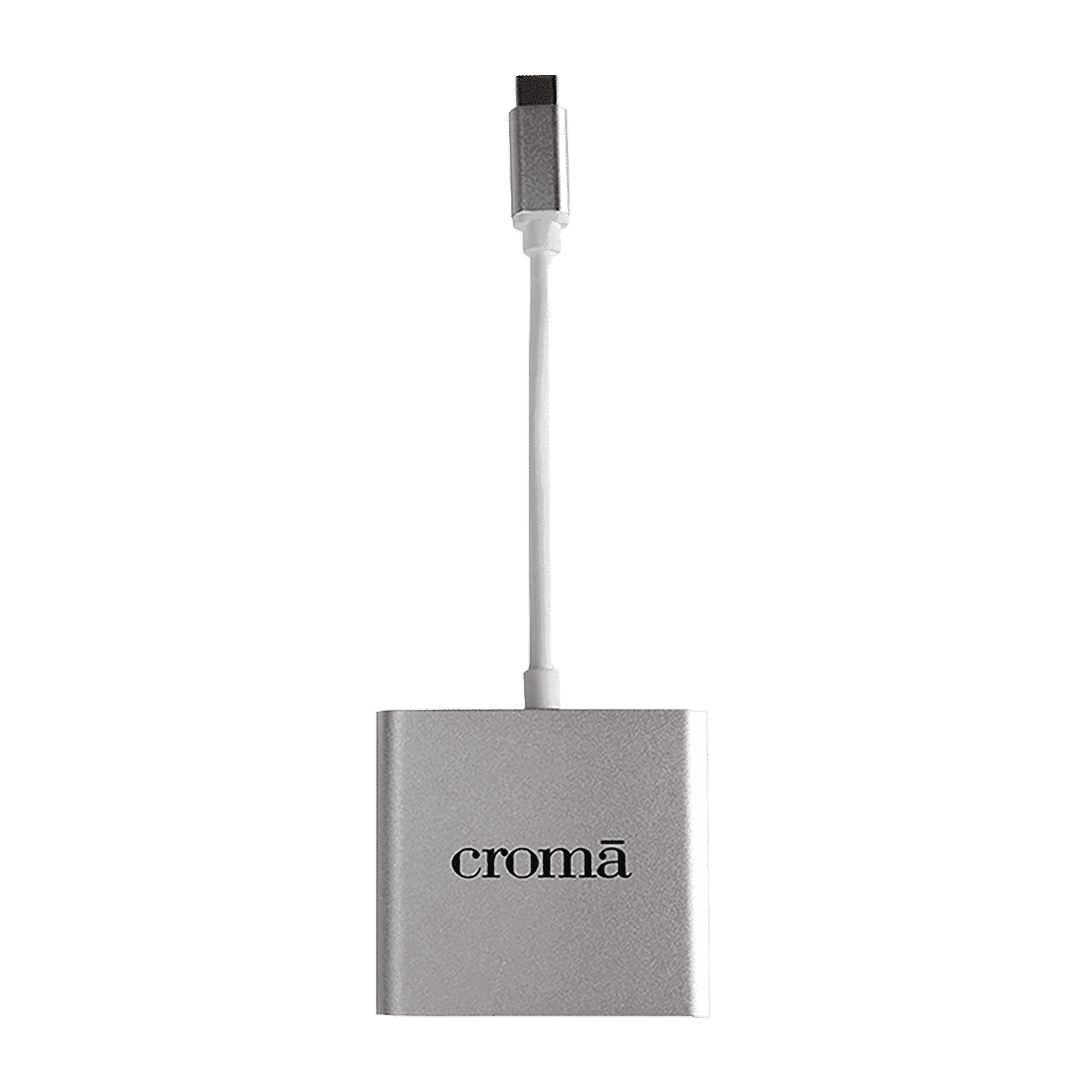%20(Presentation)%20(1600%20x%20600%20px)(20)-a2031a9c-61a5-429c-a42e-338488d70cf3.webp&w=3840&q=75)
Consumer Electronics
•05 min read

Buy ultraprolink USB 3.1 Type C to USB 3.1 Type C, USB 3.0 Type A, HDMI USB Hub (Bi-Directional Flow, White) online at best prices from Croma. Check product details, reviews & more. Shop now!
Connectivity is evolving rapidly. The shift from Micro USB to USB-C represents a major leap forward in technology, combining speed, power, and universal compatibility to empower your digital life. Embracing this change may seem daunting, particularly if you have devices that still rely on legacy ports. However, understanding this transition can help you navigate the move with ease and confidence while unlocking a more connected future. Plus, with Tata Neu, you can enjoy rewards like earning up to 5% NeuCoins with every purchase, ensuring a smarter and more rewarding shopping experience.
USB-C offers numerous advantages over the traditional Micro USB format. With faster data transfer rates, higher power delivery, and the benefit of a reversible design, USB-C is tailored for modern devices. Whether you are a tech enthusiast, a busy young professional, or a family seeking reliable performance, the benefits of USB-C are clear. The growing adoption across smartphones, laptops, and even home appliances makes it a suitable choice for everyone, paving the way for a more seamless and efficient connectivity experience.
Every technological shift comes with its unique set of challenges. As you consider upgrading to USB-C, you may feel overwhelmed by the need to support older Micro USB devices. This is where converters, adapters, and cables come into play, offering practical solutions for bridging the gap between legacy systems and modern technology. Instead of replacing all your devices immediately, transitioning through reliable Micro USB to USB-C converters can be a cost-effective and convenient method to enjoy the benefits of both worlds. Tata Neu’s express delivery service for orders placed before 6 PM ensures you receive your converters quickly and efficiently, making the transition even smoother.
Micro USB to USB-C converters are small, yet powerful devices designed to connect older technology with contemporary USB-C devices. They work by adapting the physical interface and sometimes adjusting power delivery and data transfer processes without compromising on performance. It is important to understand that while converters ensure that both ends are compatible, there exists a subtle difference when compared to adapters or cables, which are often purpose-specific for either charging or data transfer.
Using a converter can deliver several tangible benefits. For starters, it guarantees compatibility with your legacy devices, ensuring that your older gadgets continue to be useful even as you upgrade to newer technology. This solution is not only cost-effective but also ensures convenience when syncing data or charging your devices. In the long run, by protecting your investments in older hardware, you allow for a smoother transition to the future of connectivity. Additionally, Tata Neu ensures unmatched after-sales support for your purchases, providing peace of mind for all your connectivity upgrades.

Buy Croma USB 3.0 Type C to USB 2.0 Type A, USB 3.0 Type C, HDMI Type A USB Hub (High-Quality Material, Silver) online at best prices from Croma. Check product details, reviews & more. Shop now!
There are several types of converters available in the market, each designed to cater to different needs. Some of the popular options include the Type C Female to Micro USB Male converter, Micro USB to Type C Female converter, and the Type C to Micro USB OTG converter. Each type has been crafted with specific uses in mind—ranging from charging to data syncing—so understanding your needs will help you determine which accessory suits you best.
When selecting a converter, several factors should influence your decision. Consider the device compatibility to ensure that the adapter works seamlessly with your existing hardware. Think about the intended use—whether it is for charging or data transfer—and evaluate the build quality to guarantee durability. A well-chosen converter can serve as your trusted companion on the journey from Micro USB to USB-C, meeting your connectivity needs without necessitating immediate hardware replacements. Ensure you select a reliable USB-C charging converter for optimal performance.
Before purchasing a converter, it is crucial to check the technical specifications and ensure that the accessory is well suited to your devices. Investing in high-quality converters from trusted brands provides peace of mind, as these products are designed to maintain long-term durability and performance. Remember, proper care and regular maintenance of your adapters can extend their lifespan and ensure they continue to bridge the gap between differing technologies efficiently.
Even the best tools can fall short if not used correctly. A common mistake is using low-quality converters that may not only perform poorly but can potentially damage your devices. Another frequent oversight is neglecting the power and data transfer limits of specific adapters. Being mindful of these limitations while ensuring that you use genuine, reliable equipment can help you avoid unnecessary repair hassles and sustain optimal connectivity.
Pro Tip:
Did You Know? According to industry standards, USB-C can support power delivery up to 100W, making it ideal for fast charging and powering larger devices like laptops. A reliable Micro USB to USB-C converter can help you bridge the gap while enjoying improved speed and versatility.
As we look ahead, USB-C is set to become a cornerstone technology in a range of emerging fields. From connected devices in our homes and workplaces to innovations in the Internet of Things and artificial intelligence, the efficiency and versatility of USB-C are already making a significant impact. Industries such as automotive and healthcare are beginning to see the benefits of faster, more reliable connectivity. This widespread integration heralds a dramatic improvement in how technology supports everyday life.
For consumers, the universal adoption of USB-C promises a simplified connectivity experience. Imagine a time when you no longer have to worry about incompatible devices or whether your charger fits the port. With widespread USB-C integration, this will soon be a reality. While converters remain essential in the transitional phase, embracing available USB-C-ready devices not only prepares you for the future but also enhances your day-to-day convenience. As technology continues to evolve, staying informed and adapting to these changes is key to enjoying a more connected lifestyle.
Yes, you can use a Micro USB to USB-C converter or adapter to connect older devices with Micro USB ports to USB-C devices.
You can use a Micro USB to USB-C adapter or a compatible cable to synchronise data between devices with different port types.
Yes, with the help of a Type C to Micro USB converter, you can connect devices with Micro USB ports to USB-C devices.
An adapter enables physical compatibility, while a converter may also adjust data transfer or power delivery specifications.
As long as you choose high-quality converters from trusted brands, they are safe for both data transfer and charging purposes.
In conclusion, the move from Micro USB to USB-C is a significant advance in connectivity. With its faster speeds, enhanced power delivery, and universal compatibility underpinned by the trustworthiness of platforms that care about user experience, such as Tata Neu, this transition is paving the way for a smarter, more efficient future. Micro USB to USB-C converters offer a practical and cost-effective method to bridge the gap, ensuring that legacy devices can continue to serve their purpose while you take advantage of innovative solutions. Adopting USB-C technology, alongside smart usage of converters, positions you to stay ahead in a rapidly evolving digital landscape. Understanding these technologies and making informed choices can truly revolutionise the way you connect, work, and play.